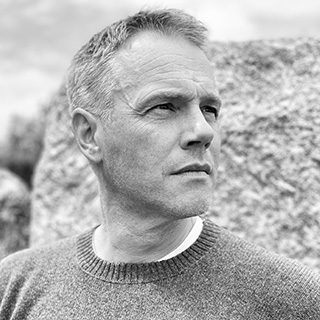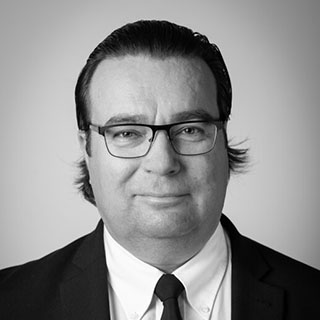Fellows

Joseph Almog
Joseph was born in Jerusalem and grew up in Israel, Africa and Paris. He received his Dphil. from University of Oxford in 1983 and Post Doc from University of Stanford in 1984. Joseph did 36 years of professorship at the University of California (last six emeritus) and since 2013, he has been a professor at the University of Turku at the Department of Philosophy. Joseph joined Emmy Network in 2018. His research focuses on the place of infinity in understanding Nature.

Ivette Fuentes
Ivette Fuentes is a Professor of Physics at the School of Physics & Astronomy, University of Southampton. She is Fellow of the Emmy Network and Fellow by Special Election of Keble College, Oxford. Ivette obtained her PhD at Imperial College London (advisors: Peter L. Knight and Vlatko Vedral). Her postdoctoral experience includes a Glasstone Fellowship and Junior Research Fellowship (Mansfield College) at the University of Oxford and a position at the Perimeter Institute for Theoretical Physics in Waterloo, Canada. Ivette was Assistant Professor at UNAM México, Professor of Mathematical Physics at the School of Mathematical Sciences in Nottingham and Professor of Theoretical Quantum Optics at the University of Vienna. Other distinctions include an Alexander von Humboldt Fellowship (Experienced Researchers) at the Technical University of Berlin and EPSRC Career Acceleration Fellowship, New Directions Award and Inspire Award. Her main research interest is understanding physics at scales where quantum theory and general relativity interplay. She joined Emmy Network in 2022.
https://ivettefuentes.weebly.com/

Joel Ouaknine
Joël Ouaknine is a Scientific Director at the Max Planck Institute for Software Systems in Saarbrücken, Germany. His research interests straddle theoretical computer science and mathematics, and lie mainly in the area of dynamical systems and computation, making use of tools from number theory, Diophantine geometry, and algebraic geometry. Joël studied mathematics at McGill University, and received his PhD in Computer Science from Oxford University in 2001. He subsequently held postdoc positions at Tulane University and Carnegie Mellon University, and worked as an academic in the Computer Science Department at Oxford University from 2004 to 2016, becoming Full Professor in 2010. He received the Roger Needham Award in 2010, an ERC grant in 2015, and was elected member of Academia Europaea in 2020. He received the 2020 Arto Salomaa Prize (jointly with James Worrell), for "outstanding contributions to Theoretical Computer Science, in particular to the theory of timed automata and to the analysis of dynamical systems". He joined the Emmy Network in 2021.
https://people.mpi-sws.org/~joel/

Jussi Westergren
Jussi was born in Lauritsala, Finland. He attended Atlantic College in Wales and went on to study mathematics, physics and fine art at McGill and University of Helsinki. He received his DPhil from University of Oxford. Jussi has spent his career working, around the globe, in academic, private sector and philanthropic projects. His research focus is the scope and limitations of modelling nature with a variety of applications in artificial intelligence, computing, life sciences and modelling of social systems. Apart from his research efforts Jussi has played a key role in founding and advising several companies and philanthropic projects like academia.edu, DeepMind, Intellectual Ventures and Turkana Basin Institute as well as African Institute of Mathematical Sciences to mention a few. He is the founder and current Scientific Director of the Emmy Network.

Hugh Woodin
Hugh Woodin is a mathematician and set theorist. He has made many notable contributions to the theory of inner models and determinacy. A type of large cardinals, the Woodin cardinals, bear his name. He joined Emmy Network in 2022.
Extraordinary Fellows

Mark Goldsmith
Mark received a joint Honours Degree in Mathematics and Computer Science from McGill University in 2005, and went on to receive a Ph.D. in Computer Science from Concordia University in 2015. His research interests range from Neural Networks and Dynamical Systems to Pseudorandom Number Generation and the Prediction of Epileptic Seizures. Mark joined the Emmy Network in 2016 and has been instrumental in directing its research agenda. He has served as a guide on how theoretical results may be applied to real-world problems.

Vesa Halava
Vesa Halava is a Professor of Discrete Mathematics and Theoretical Computer Science at the University of Turku. His field of research is in the field of Computability, more precisely on undecidable problems in automata and formal langauges and in the semigroups generated by integer matrices. Recently, Vesa has also focused on the Foundations of Computation and related issues in the Foundations of Mathematics - in Logic and Set Theory. He has also published articles in Combinatorics on Words.

Sabrina Maniscalco
Sabrina Maniscalco is the Professor of Quantum Information, Computing and Logic at the University of Helsinki, Finland, and CEO and co-founder of Algorithmiq Ltd (www.algorithmiq.fi). She is also an adjunct professor at Aalto University (Helsinki), the vice Director of the Finnish Centre of Excellence for Quantum technologies (www.qtf.fi), and the vice Director for Education of InstituteQ (www.instituteq.fi). Prof. Maniscalco works on the understanding of limitations and possibilities of realistic quantum technologies, specifically focussing on the effect of noise on quantum-enhanced devices. More recently she has started to investigate complex quantum networks with the aim of understanding the interplay between quantum advantage and network topology. Finally, she is the co-creator of the online platform QPlayLearn for education, outreach and training on quantum science and technology.

Roger Penrose
Sir Roger Penrose an English mathematician, mathematical physicist, philosopher of science and Nobel Laureate in Physics. He has contributed to the mathematical physics of general relativity and cosmology. He has received several prizes and awards, including the 1988 Wolf Prize in Physics, which he shared with Stephen Hawking for the Penrose–Hawking singularity theorems, and one half of the 2020 Nobel Prize in Physics "for the discovery that black hole formation is a robust prediction of the general theory of relativity". He is regarded as one of the greatest living physicists, mathematicians and scientists, and is particularly noted for the breadth and depth of his work in both natural and formal sciences.
Graduate scholars

Julian D'Costa
Julian D'Costa is a DPhil student at the University of Oxford and the inaugural Stephen Cameron Scholar at Keble College. He previously studied mathematics at the Indian Institute of Science, earning a First Class with Distinction. Julian's research interests lie in theoretical computer science and AI, currently focusing on algorithmic verification. He is also interested in synthetic biology, drug discovery and education. Julian joined the Emmy Network in 2020.

Toni Hotanen
Toni received his M.Sc. from the University of Turku in 2017, majoring in the field of Mathematics. During his studies he has amassed an extensive knowledge in Formal Language and Automata Theory, Cellular Automata Theory, and Graph Theory. He has also studied a plethora of other subfields of Mathematics, and has minored in Computer Science and Statistics. Toni joined Emmy Network in 2017 to continue working on his topics of interest and start his PhD studies at the University of Turku.

Joona Kurikka
Joona has completed his M. Sc. degree from Aalto University in 2013, where he majored in Cognitive Technology and product development. Joona is currently finalizing his Ph.D. in Computer Science on proliferating innovations from fundamental research and has also been working on related projects for the past decade, with for example CERN, IBM, Nokia and Elisa. Joona joined Emmy Network in 2017.

Guillermo Garcia Pérez
Guillermo completed his PhD in Physics at Universitat de Barcelona in 2018. His current research interests include the study of the structure of Real Complex Networks from a geometric perspective, as well as the dynamics of Interconnected Quantum Systems forming Complex Topologies. In a recent publication, he defined a geometric renormalization group for complex networks that reveals that real networks are self-similar. This symmetry was exploited to construct smaller-scale replicas of real systems for efficient dynamics simulation and to propose a multiscale navigation protocol with higher efficiency than its single-scale counterpart. Guillermo joined Emmy Network in 2018.

Harto Saarinen
Harto obtained his Master’s degree in Mathematics from the University of Turku in 2016 after engaging in a wide spectrum of courses in Chemistry, Physics, Computer Science and Mathematics. Following his M.Sc., Harto prepared his Licentiate thesis on a subject that intersected both Mathematics and Philosophy, on a topic dealing with highly abstract notions within the fundamentals of mathematics. Before joining Emmy Network in 2017, he had just started his Ph.D. thesis in Stochastic Modelling, Mathematical Finance, Probability Theory and Partial Differential Equations at the University of Turku. Harto’s enthusiasm in all things mathematical is demonstrated in his strong knowledge in the many different branches of the field, from the entirely theoretical to the immediately practical.
Alumni

Andreas Holmström
Andreas received his PhD in Pure Mathematics from the University of Cambridge in 2010. He has a wide range of experience in teaching, edtech, NGO work (UNICEF), as well as mathematical research at Caltech, Bordeaux,Paris, Oslo, Bonn, Stockholm and University of Turku. His current research interests include L-functions and Zeta Functions, Cohomology Theories, Grothendieck Rings of Tannakian Categories (i.e. Universal Symmetry Representations), but also new conceptual frameworks for Metamathematical Analysis, with applications in Math Education, Philosophy and new forms of Mathematical Artificial Intelligence. Andreas was affiliated with Emmy Network from 2018 to 2020.

Anna Pursiheimo
Anna Pursiheimo graduated from the University of Turku, obtaining an M.Sc., where she majored in Applied Mathematics with an orientation in Actuarial Mathematics. During her time in the insurance industry, she specialized in both personal and life insurance. After this period, she went to work in the IT field as a consultant for some of Finland’s largest enterprises, including Nokia and Outokumpu. In addition to her actuarial sciences background, Anna’s academic focus and ongoing research on complex systems, with a special interest in the evolution of cooperation, has made her an ideal fit for the networks' research efforts. Andreas was affiliated with Emmy Network from 2017 to 2021.

